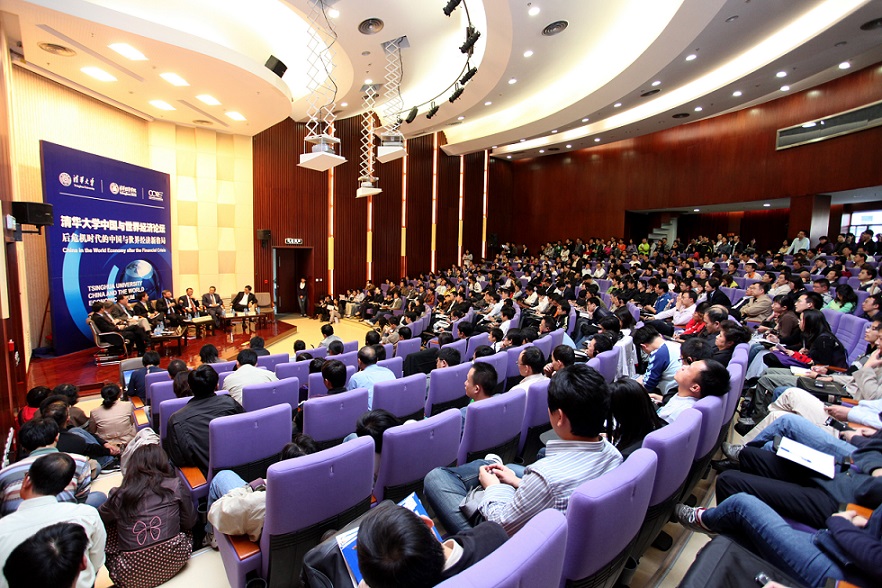No. 1 | The New Pattern after the Crisis

On October 17, 2009, Tsinghua University successfully conducted its frst China in the World Economy Forum. Tsinghua University Vice-Chancellor XIE Weihe opened the forum by offering congratulations on behalf of the University. He stated that, in addition to achieving excellent academic performance and cultivating talent, Tsinghua University, SEM and CCWE have a great responsibility to pay close attention to current social problems, especially those directly related to the interests of common people. He also pointed out that the global financial crisis has reshaped the world economy to some extent, and how the global economy will evolve and what opportunities and challenges this poses for China will require thorough analysis. As a result of focusing on these issues, the forum takes on far-reaching practical and strategic significance. Vice-Chancellor Xie’s remarks were followed by Professor LIAO Li, Associate Dean of the Schools of Economics and Management. He said that the forum will evolve into an effective platform where leading academics, government officials and business figures can communicate with each other, discussing issues concerning economic development of the world and China, as well as exploring future trends, which provides beneficial insights into economic changes that affect China and the world.
The speeches by Vice-Chancellor Xie and Professor Liao were followed by the main forum panel. The panelists were in agreement that the financial crisis presented not only unprecedented challenges, but also tremendous opportunity for development. No one can deny that China’s global impact has increased greatly in recent years. China’s rising international status is a favorable factor in enabling it to reach and maintain a leading position in the future economic world, creating extensive space for further development. However, diverse opinions arose when it came to the following problems: How can China take advantage of these favorable conditions to be a leading force in the post-crisis era? How can China find a balance between overcoming the crisis to realize further development and assuming a vital role as a rising power? Among a diverse and impressive array of hot-button issues covered in the forum were: persisting along the course of long-term sustainable development based on China’s reality as well as Western and Chinese theories; attaching importance to economic restructuring; gradually resolving imbalance in the real economy; settling international trade disputes effectively by making full use of rules; coping with globalization challenges, etc. The panelists were involved in heated open discussion, exchanging ideas in a spirited fashion. During the three-hour meeting, the academics and experts put forward suggestions for China’s future economic development path, helping to promote understanding of current foreign and domestic issues in the economic and finance domains.




